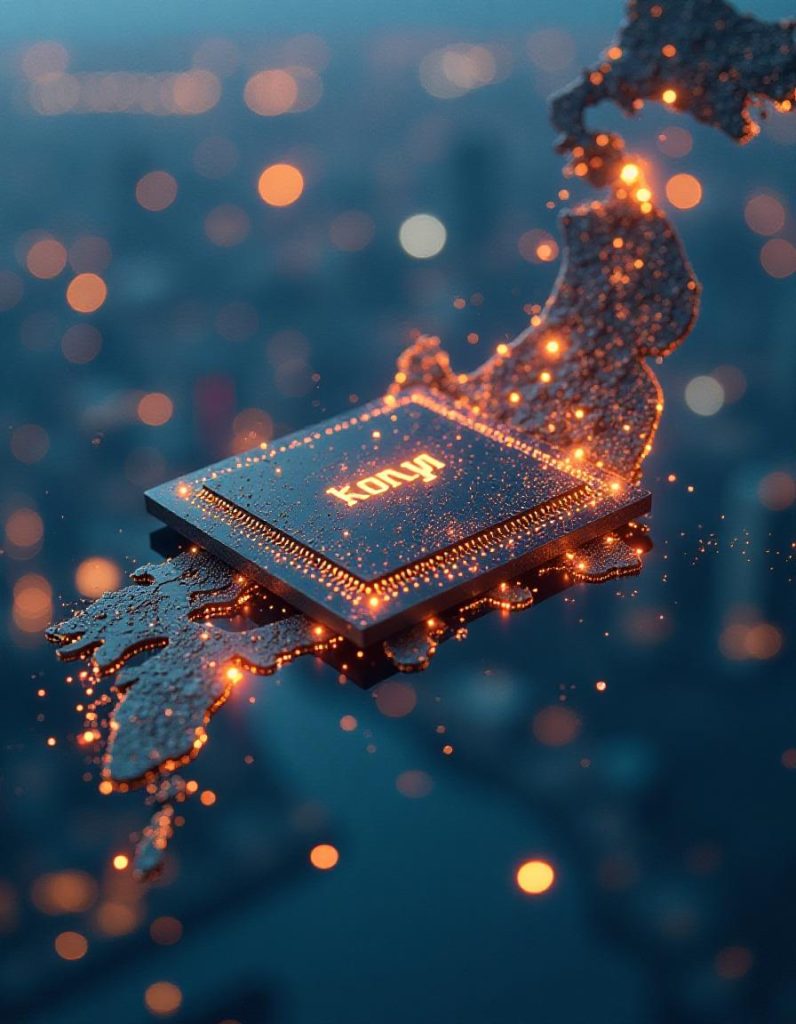Japan’s leading chip equipment manufacturer, Tokyo Electron Ltd., is set to expand its operations by hiring and training engineers in India. This strategic move aligns with the Indian government’s efforts to bolster semiconductor manufacturing within the country, aiming for a significant impact around 2026.
Collaboration with Tata Electronics
The initial phase of this initiative will focus on providing technical services to Tata Electronics Pvt. Tokyo Electron’s CEO, Toshiki Kawai, emphasized that the company plans to incorporate robotics into its operations, providing local engineers with both in-person and remote support from Japan. While the exact number of engineers to be recruited has not been disclosed, this move underscores Tokyo Electron’s commitment to supporting India’s semiconductor ambitions.
India’s Semiconductor Strategy
Under Prime Minister Narendra Modi’s leadership, India is actively working to attract international electronics firms and chipmakers to set up manufacturing facilities domestically. This initiative is part of a larger goal to close the technological gap with advanced economies. Companies like Apple Inc. are ramping up their production in India, while local giants such as Tata Group are heavily investing in semiconductor fabrication plants.
To facilitate these developments, the Indian government is offering substantial incentives, creating an inviting environment for companies like Tokyo Electron. The company specializes in the machinery and expertise essential for semiconductor production, positioning it as a key player in India’s tech landscape.
Global Expansion Plans
Tokyo Electron has ambitious plans to hire 10,000 new employees globally over the next five years. This expansion reflects the rising demand for domestic chip manufacturing across various countries. The company’s initiatives in India are part of a broader strategy to capitalize on the growing global demand for semiconductors, particularly in emerging fields such as artificial intelligence (AI), autonomous vehicles, and energy efficiency.
Despite the challenges posed by U.S. pressures to restrict the export of advanced chipmaking equipment to China, Tokyo Electron remains optimistic about the global demand for its products. The U.S. government has encouraged Japan to limit Tokyo Electron’s ability to service certain equipment in China. However, Kawai believes that the global significance of semiconductors will drive continued investment in chipmaking technologies.
Support for Tata Electronics
As part of its commitment to Tata Electronics, Tokyo Electron plans to provide training for its workforce on chipmaking equipment and assist in research and development efforts. This collaboration reflects a growing trend of semiconductor investments in India, bolstered by the Modi administration’s approval of over $15 billion in investments. Notable projects include a $2.75 billion assembly facility by U.S. memory maker Micron Technology Inc. and a potential $10 billion fabrication plant partnership between Israel’s Tower Semiconductor Ltd. and Indian billionaire Gautam Adani.
Balancing Markets
While China remains a crucial market for Tokyo Electron, accounting for nearly 50% of its revenue in the June quarter, the company anticipates that sales to China will decrease to between 25% and 30% as its overall sales continue to grow. Kawai emphasized that India is not intended to replace the Chinese market but serves as an additional opportunity for growth. This dual approach will allow Tokyo Electron to diversify its market presence and mitigate risks associated with over-reliance on a single market.
Advancing Technology
Tokyo Electron is focused on enhancing its technologies, particularly in cryogenic etching for high-speed processing of stacked NAND memory and conductor etching for DRAM. These advancements are critical as the company strives to increase its market share against competitors like Applied Materials Inc. Despite fluctuations in investor sentiment, especially towards AI, Kawai remains optimistic about the broader growth potential in the semiconductor industry.
Market Trends and Future Outlook
Although Tokyo Electron’s stock has experienced a decline since reaching a record high in April, the company maintains a long-term perspective on the semiconductor market. Kawai believes the industry’s potential is far more extensive than current trends in AI may suggest. The growing integration of semiconductors in various sectors indicates a robust demand that will persist in the coming years.
As Tokyo Electron embarks on this new journey in India, the collaboration with Tata Electronics marks a significant step towards building a strong semiconductor ecosystem in the country. By investing in local talent and aligning with governmental initiatives, Tokyo Electron is well-positioned to play a crucial role in the evolution of India’s technology landscape.
Conclusion
Tokyo Electron’s plans to hire and train Indian engineers signal a promising future for semiconductor manufacturing in India. With a focus on collaboration with Tata Electronics and significant government support, the company aims to contribute to the nation’s tech ambitions. As global demand for chips continues to rise, Tokyo Electron’s efforts could help India carve out a prominent role in the semiconductor supply chain.
This initiative not only reflects the growing importance of semiconductor technology but also highlights the potential for India to emerge as a major player in the global electronics market. By fostering local talent and investing in advanced manufacturing capabilities, India can position itself as a key hub for semiconductor innovation and production in the years to come.
